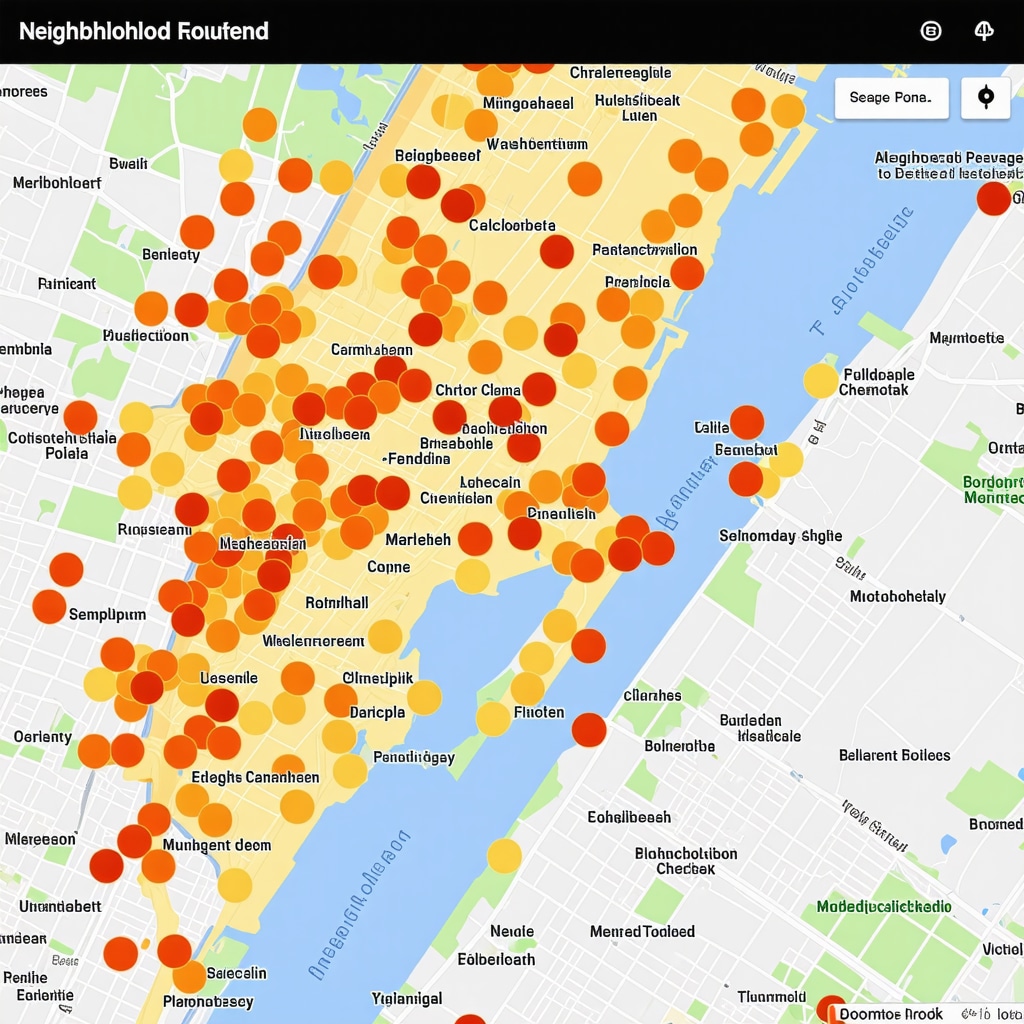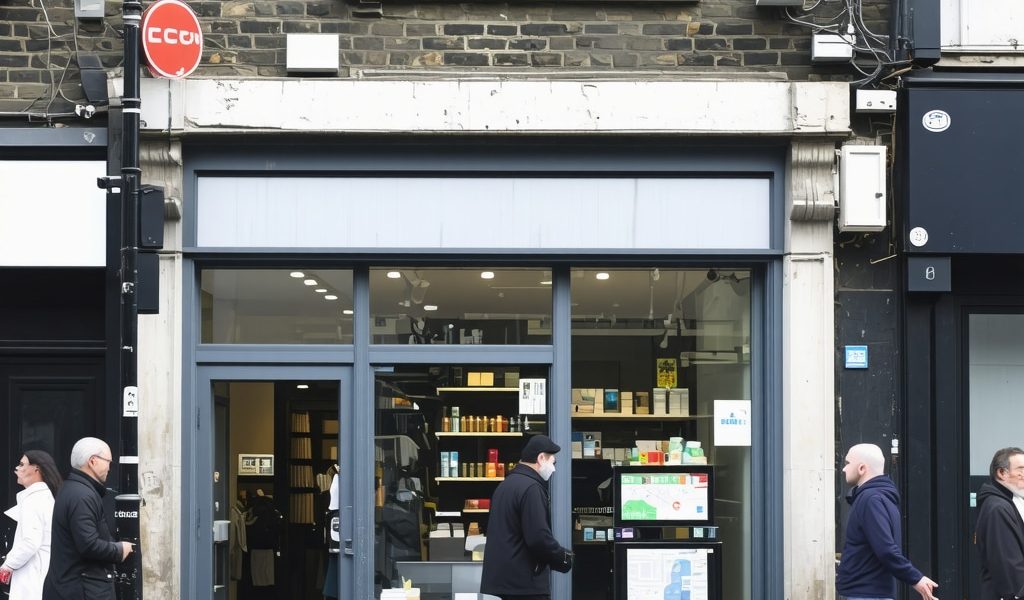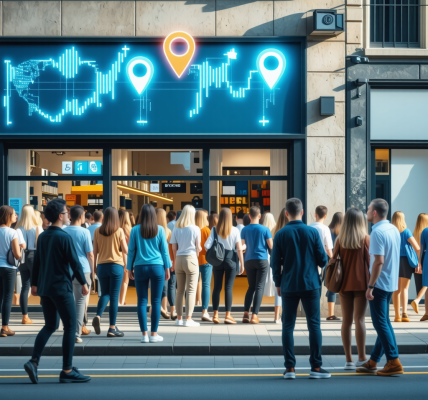Unlocking the Power of Hyperlocal SEO: Why Nearby Searches Matter More Than Ever
In a world where consumers increasingly rely on their smartphones to find services and products in their immediate vicinity, mastering hyperlocal SEO has become indispensable for local businesses. Hyperlocal SEO zeroes in on optimizing your online presence to rank prominently in nearby searches, turning casual browsers into loyal customers right within your neighborhood. Unlike traditional local SEO, hyperlocal strategies focus on micro-geographic targeting, such as neighborhoods, districts, or even specific streets, significantly increasing the relevance and conversion potential of your digital marketing efforts.
Crafting Your Local Digital Footprint: The Art of Precision in Business Listings
A foundational pillar of hyperlocal SEO is the meticulous optimization of your Google Business Profile (GBP). Ensuring your business name, address, and phone number (NAP) are consistently accurate across all platforms is crucial. Beyond basics, enriching your GBP with targeted keywords, category selections, and engaging photos fosters trust and relevance. For nuanced tactics on optimizing your Google Business Profile effectively, explore our detailed guide here.
How Can Local Reviews and Citation Management Elevate Hyperlocal Rankings?
Customer reviews act as social proof, directly influencing search rankings and consumer trust. Encouraging authentic, positive reviews while managing citations from authoritative local directories enhances your local authority. Strategic citation management, including consistency and accuracy, can dramatically boost your visibility in hyperlocal searches. Proven methods to amplify your reputation through reviews and citation management are discussed extensively in our resource on local SEO strategies for customer reviews.
Harnessing Geo-Targeted Content and Keywords: Speak Your Neighborhood’s Language
Embedding hyperlocal keywords within your website content, blog posts, and GBP description must be both natural and strategic. Incorporate neighborhood names, landmarks, and localized phrases that your target audience uses. This semantic approach signals search engines about your exact service area, enhancing your chances to appear in hyperlocal queries. For mastering keyword crafting tailored for Google Business descriptions in 2025, check out this expert guide.
Leveraging Google Maps and Beyond: The Ecosystem of Hyperlocal Visibility
Optimizing for Google Maps is paramount since many hyperlocal searches rely on map results. This involves not only GBP optimization but also ensuring your location data is embedded in local citations and backlinks. Google’s algorithms prioritize businesses with consistent, verified, and comprehensive information. Learn advanced Google Maps SEO tactics to power your local business growth by visiting this authoritative resource.
Hyperlocal SEO is a dynamic and multi-layered discipline. By combining precise local listing management, reputation enhancement through reviews, geo-targeted content, and map optimization, your business can dominate nearby search results and convert local intent into tangible growth.
If you found these insights valuable, share this guide with fellow local business owners aiming to thrive in their communities or leave a comment below with your own experiences!
Personalizing Your Approach: How I Learned to Hyperlocalize Content That Resonates
When I first started experimenting with hyperlocal SEO, I realized that generic content just wouldn’t cut it. One powerful moment was when I rewrote an entire blog post to focus on a single neighborhood where my client’s store was located. Instead of broad terms like “best coffee shop,” I used phrases like “best coffee spot in Maplewood neighborhood,” weaving in local landmarks and community events. The result? A noticeable uptick in nearby traffic and engagement. This personalized content strategy made the business feel woven into the fabric of the community, something I believe every local business should strive for.
Consistency Is King: Lessons from Managing Multiple Local Listings
Managing multiple business listings across various platforms taught me a vital lesson: consistency is king. I once encountered a situation where a client’s address was slightly different on their website compared to their Google Business Profile, causing confusion and lowering rankings. Ensuring that NAP data is perfectly aligned across directories and citations is non-negotiable. I recommend using tools that automate citation management to keep everything uniform, which aligns with best practices suggested by industry experts at Moz in their comprehensive guide to local SEO here. This approach not only improves SEO but builds trust with customers and search engines alike.
How Can You Keep Your Google Business Profile Fresh and Engaging?
One question I often get asked is how to maintain a lively Google Business Profile that keeps local customers interested. From my experience, regularly updating your profile with posts about new products, promotions, or community involvement goes a long way. For instance, I helped a local bakery by posting weekly updates about fresh batches, seasonal treats, and customer shoutouts. This consistent engagement led to increased views and interactions on their GBP, boosting their local ranking. If you’re curious about practical weekly posting strategies, check out this insightful guide on keeping your local audience engaged with weekly GMB posts.
The Subtle Power of Customer Reviews: My Journey with Reputation Management
Reviews are the heartbeat of local SEO, but managing them thoughtfully is an art. Early in my career, I underestimated the impact of responding to reviews, both positive and negative. Once I began actively engaging with customers, thanking them for positive feedback, and addressing concerns with empathy, the business’s reputation soared. Not only did this improve local rankings, but it also fostered community loyalty. Google’s own research highlights that businesses who respond to reviews see higher customer engagement and rankings (Google Blog on Maps and Reviews).
Integrating Hyperlocal SEO Into Broader Marketing Efforts
One insight I cherish is that hyperlocal SEO doesn’t exist in isolation; it harmonizes beautifully with other marketing channels. I’ve seen clients leverage their hyperlocal content on social media, email newsletters, and even offline events to build a cohesive brand presence. For example, promoting a neighborhood cleanup event via your Google Business Profile and social pages can create a virtuous cycle of awareness and engagement. This integration amplifies the impact far beyond search rankings.
For those ready to optimize their Google Business Profile further, I highly recommend exploring the step-by-step guide on how to optimize your Google Business Listing effectively, which complements many of the strategies I’ve shared here.
If you’ve had any experiences with hyperlocal SEO—successes, challenges, or questions—I’d love to hear your stories! Drop a comment below or share this post with fellow local business owners who might benefit.
Voice Search Optimization: Unlocking the Next Frontier in Hyperlocal SEO
As voice-activated assistants like Google Assistant, Alexa, and Siri become ubiquitous, hyperlocal SEO strategies must evolve to capture this growing segment of search behavior. Voice searches tend to be more conversational and question-based, often containing localized intents such as “Where can I find the best vegan bakery near me?” or “Is there a 24-hour pharmacy in downtown Maplewood?” This demands a shift from traditional keyword insertion to natural language processing (NLP) techniques that anticipate how locals phrase their queries verbally.
To optimize for voice search, businesses should focus heavily on FAQ-rich content, leveraging long-tail keywords that mirror real-world questions. Implementing structured data (Schema.org markup) on your website enhances search engines’ understanding of your content and improves the chances of being featured in rich snippets or voice responses. Additionally, ensuring that your business information is up-to-date and detailed in Google Business Profile supports voice assistants in providing accurate local answers.
For example, a local café might include an FAQ section answering questions like “Do you offer gluten-free options?” or “What are your opening hours on weekends?” — precisely matching voice query patterns. This approach not only improves discoverability but also builds trust through immediate, relevant responses.
How Does AI Influence Hyperlocal Search Rankings and User Engagement?
Artificial Intelligence (AI) increasingly shapes the algorithms governing local search rankings. Google’s RankBrain and BERT updates enhance semantic understanding and user intent prediction, enabling more personalized and contextually relevant results in hyperlocal searches. AI also powers predictive search features and local intent modeling, which can surface businesses proactively before users explicitly search.
From a practical standpoint, AI emphasizes the importance of user behavior metrics such as click-through rates, dwell time, and engagement signals. A hyperlocal business that encourages interaction through dynamic content, live chat, or booking integration stands a better chance of ranking higher. Moreover, AI-driven tools can analyze competitor strategies, local sentiment, and emerging trends, offering actionable insights to refine your hyperlocal SEO campaigns continuously.
For a deeper dive into the interplay between AI and local SEO, Search Engine Land’s expert analysis provides comprehensive coverage.
Leveraging Hyperlocal Influencers and Community Partnerships to Amplify Local Visibility
Beyond technical optimization, tapping into the social fabric of your community can exponentially boost your hyperlocal SEO efforts. Collaborations with neighborhood influencers — micro-influencers with a dedicated local following — can generate authentic content, user-generated reviews, and social signals that search engines value highly. These partnerships often lead to backlinks from relevant local blogs and news sites, further enhancing domain authority within a hyperlocal context.
Community events, sponsorships, or participation in local causes also create offline-to-online synergy. Announcements and media coverage of these activities provide fresh content opportunities and citations that reinforce your local presence. Integrating such initiatives with your Google Business Profile posts and social media channels ensures consistent messaging and maximizes reach.
Precision Analytics: Decoding Hyperlocal Performance Metrics for Strategic Insights
Advanced hyperlocal SEO success hinges on the ability to interpret granular data beyond standard Google Analytics reports. Tracking metrics such as local search impressions, map engagements, call clicks, and direction requests provides a clearer picture of how effectively your business captures neighborhood interest.
Specialized tools like BrightLocal and SEMrush’s Local SEO toolkit enable you to monitor keyword rankings at the zip code or street level, identify citation inconsistencies, and benchmark against hyperlocal competitors. Heatmaps of user interactions on your website, combined with geographic segmentation of traffic sources, reveal untapped micro-markets or neighborhoods requiring targeted campaigns.
Regular A/B testing of localized landing pages, Google Business Profile posts, and promotional offers allows iterative optimization. By continuously refining content and outreach based on data-driven insights, businesses can maintain agility in a rapidly changing local search landscape.
Staying ahead in hyperlocal SEO demands embracing these complex yet rewarding strategies. Dive deeper into mastering these techniques by subscribing to our advanced local SEO newsletter, where we dissect cutting-edge tools and case studies designed for local business leaders ready to dominate their neighborhoods.
AI-Driven Personalization: Crafting Hyperlocal Experiences Beyond Basics
Artificial Intelligence now enables hyperlocal SEO practitioners to tailor digital experiences with unprecedented granularity. By utilizing machine learning algorithms to analyze local search behavior, demographic data, and user preferences, businesses can dynamically adapt website content and Google Business Profile features to reflect the evolving nuances of their micro-community. This level of personalization fosters deeper engagement and boosts local relevance signals that search engines prioritize.
What Are the Cutting-Edge AI Tools Transforming Hyperlocal SEO Campaigns?
Leading-edge AI platforms such as BrightLocal’s AI-powered insights and SEMrush’s local SEO automation tools employ natural language processing and predictive analytics to uncover hyperlocal keyword opportunities, monitor competitor activities, and optimize citation consistency. These tools enable marketers to forecast shifts in local demand, craft voice search-optimized content, and fine-tune outreach strategies with surgical precision. For an authoritative overview of these advancements, consult Search Engine Land’s analysis on how AI is revolutionizing local SEO.
Integrating Advanced Analytics: Unlocking Hidden Patterns in Hyperlocal Engagement
Beyond surface-level metrics, deploying geo-analytics combined with user interaction heatmaps reveals intricate patterns of local consumer behavior. By segmenting data at the neighborhood or even block level, businesses can identify peak engagement windows, preferred content formats, and conversion bottlenecks. This granularity empowers iterative optimization of localized landing pages and Google Business Profile posts, ensuring messaging resonates authentically with distinct hyperlocal audiences.

Community-Driven SEO: Harnessing Local Influencers and Partnerships for Organic Amplification
Building strategic alliances with micro-influencers and community organizations transcends traditional link-building by embedding your brand within the social fabric of the locality. Authentic endorsements and collaborative events generate rich user-generated content and local backlinks, signaling credibility to search engines and expanding organic reach. Tactically integrating these partnerships into your hyperlocal content calendar amplifies visibility, fosters trust, and accelerates rankings.
Embracing these sophisticated hyperlocal SEO tactics can dramatically elevate your business’s competitive positioning in the digital neighborhood landscape. Ready to unlock these advanced strategies? Engage with our expert community or subscribe to our newsletter for exclusive insights and personalized guidance tailored to your local market’s unique dynamics.
Frequently Asked Questions (FAQ)
What exactly is hyperlocal SEO and how does it differ from traditional local SEO?
Hyperlocal SEO focuses on optimizing your online presence to target extremely specific, micro-geographic areas such as neighborhoods, districts, or streets, whereas traditional local SEO targets broader city or regional searches. This precision enhances relevance and conversion by connecting businesses with customers in their immediate vicinity.
How can I ensure my Google Business Profile stands out in hyperlocal searches?
Consistently maintain accurate and detailed NAP (Name, Address, Phone) information across all platforms, enrich your profile with localized keywords, categories, high-quality photos, and post frequent updates about products, events, or community involvement. Engaging actively with customer reviews also boosts visibility and trust.
Why are customer reviews and citation management critical in hyperlocal SEO?
Reviews provide social proof that influences both consumer trust and search rankings. Citation management ensures your business information is consistent and authoritative across local directories, reinforcing your legitimacy to search engines and improving your local search visibility.
How can voice search optimization improve my hyperlocal SEO efforts?
Voice searches tend to be conversational and question-based with local intent. Optimizing for voice involves creating FAQ-rich content using natural language and long-tail keywords, implementing structured data markup, and keeping your business information up-to-date to increase chances of appearing in voice assistant results.
What role does AI play in enhancing hyperlocal SEO strategies?
AI algorithms improve understanding of user intent and context, personalize search results, and help analyze competitor and market trends. AI-powered tools assist in discovering hyperlocal keyword opportunities, automating citation management, and optimizing content for voice and text searches, thereby increasing ranking and engagement.
How can partnering with local influencers and community organizations benefit my hyperlocal SEO?
Collaborations with micro-influencers and community groups generate authentic content, user reviews, and local backlinks that enhance credibility and organic reach. These partnerships embed your brand within the community fabric, amplifying visibility and trust beyond traditional SEO tactics.
What are the best metrics to track for measuring hyperlocal SEO success?
Key metrics include local search impressions, map engagements, call clicks, direction requests, and neighborhood-level keyword rankings. Tools like BrightLocal and SEMrush help monitor these granular data points, enabling data-driven adjustments for continuous performance improvement.
How can I optimize content to resonate specifically with my neighborhood audience?
Incorporate neighborhood names, landmarks, and local events naturally into your website content, blog posts, and Google Business Profile. Use localized language and address community-specific needs to build authentic connections, enhancing both search relevance and customer engagement.
Why is consistency across all listings and citations so important?
Inconsistent business information can confuse search engines and users, leading to lower rankings and lost trust. Uniform NAP data across directories and platforms signals reliability, which is a fundamental ranking factor for hyperlocal search results.
How do advanced analytics improve hyperlocal SEO strategies?
Advanced analytics reveal detailed user behavior and geographic patterns, uncovering micro-market opportunities and content preferences. This data facilitates targeted A/B testing and iterative refinement of localized content and outreach, driving more effective and agile hyperlocal campaigns.
Trusted External Sources
- Google My Business Help Center: The official resource providing authoritative guidelines on optimizing and managing your Google Business Profile for local and hyperlocal SEO.
- Moz Local SEO Guide: A comprehensive industry-leading resource that details best practices for citation management, local listings consistency, and reputation building.
- BrightLocal Local SEO Toolkit: Provides specialized tools and insights for monitoring hyperlocal rankings, citations, and customer engagement metrics essential for precise local marketing.
- Search Engine Land – AI and Local SEO Analysis: Offers expert commentary and deep dives into how AI technologies influence local search algorithms and practical applications for marketers.
- Google Blog on Maps and Reviews: Official Google insights about the significance of reviews and map optimization in enhancing local search visibility and user experience.
Conclusion
Hyperlocal SEO represents a pivotal evolution in local digital marketing, emphasizing micro-geographic precision to connect businesses intimately with their immediate communities. This article explored advanced strategies including meticulous Google Business Profile optimization, reputation management through customer reviews, geo-targeted content creation, voice search adaptation, AI-driven personalization, and community partnerships. Leveraging these multifaceted tactics with consistent data analysis empowers local businesses to dominate nearby search results, foster trust, and convert local intent into measurable growth. Embracing hyperlocal SEO not only enhances discoverability but weaves your brand into the social fabric of your neighborhood, creating authentic engagement and sustainable success. Ready to elevate your local presence? Share this expert guide, engage with your community, and explore our related content to unlock the full potential of hyperlocal SEO today!


